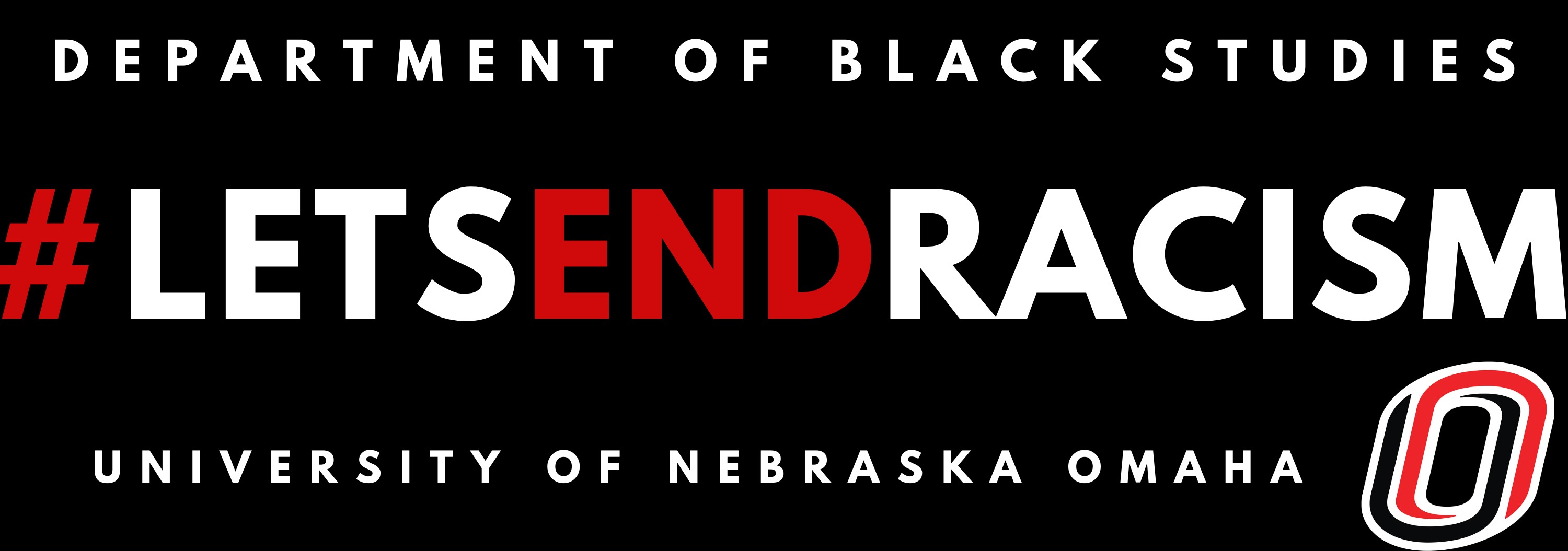The Department of Black Studies will continue to fight the persistent racism, injustice, and violence facing Black Americans, and we will continue to say the names of those who have had their lives unjustly taken.

June 5, 2020
Dear Campus and Community Family,
There is a deep-rooted cancer in this country called white supremacy, which thrives on black/brown inferiority so it targets black/brown people. As a result of centuries of race-based slavery in the U.S., which depended on the lie of African inferiority, the cancer of white supremacy affects African Americans in a different way. A post-Civil War narrative was created of Black people (but not Black culture) as inferior, lazy, dangerous, subhuman animals, and Black men in particular as "black beasts." This narrative of Black inferiority encourages a post-slavery criminalization of Black people that allows police brutality and killings of Black people to go unpunished.
Black people are brutalized and killed by police for the crime of "being Black" during a routine traffic stop and reaching for a wallet too quickly; or for sleeping in one's own bed while Black, and the police break into the house in the middle of the night and shoots to kill because of, well...mistaken identity. A narrative of Black bodies as subhuman and inferior also encourages ordinary white citizens to "police" Black people for "crimes" such as walking or jogging while Black, BBQ-ing or bird-watching in the park while Black, or protesting police brutality while Black.
Historically, ordinary whites have been given a pass to "police" African American bodies. Like those who participated in "spectacle lynchings," the gruesome, torturous, public killings of Black people during the late 1800s and most of the 1900s, white citizens who "police" Black citizens understand the relationship between white supremacy and criminal justice. Lynching Black people was law enforcement. Police killing unarmed Black people is law enforcement.
This narrative of white supremacy and Black inferiority needs to change. The narrative of Black inferiority is why there is a discipline called Black Studies. The cancer of white supremacy and the structures which hold together racism exists in academia as strongly as they do in law enforcement. Yes, this cancer is on UNO's campus.
As a breast cancer survivor myself, I was blessed to have a TEAM of doctors who were committed to helping me fight breast cancer, a disease which left unchecked, is fatal. The Department of Black Studies is like ONE of those doctors committed to fighting the cancer that is racism in academia. We welcome all who want to be on this TEAM.
I am encouraged today by the local, national, and global support which is acknowledging the cancer of white supremacy and its impact on, not only Black people, but the soul of the country, and all who care about it.
Be well,
Dr. Cynthia L. Robinson
Chair, Department of Black Studies
University of Nebraska at Omaha